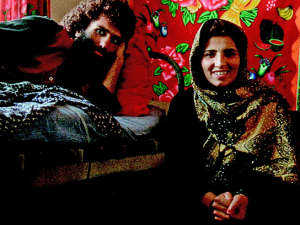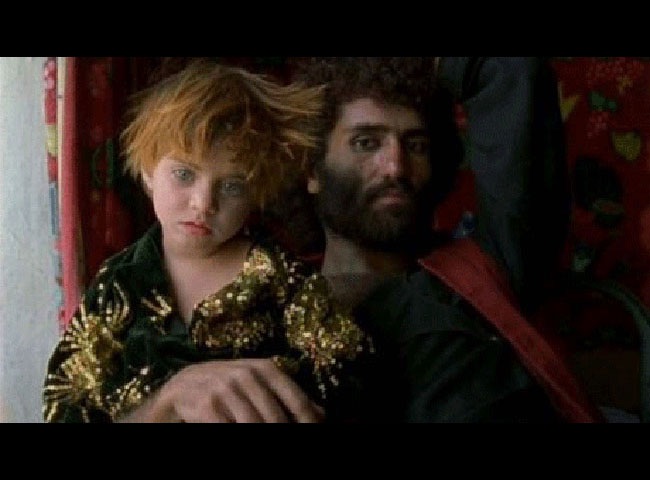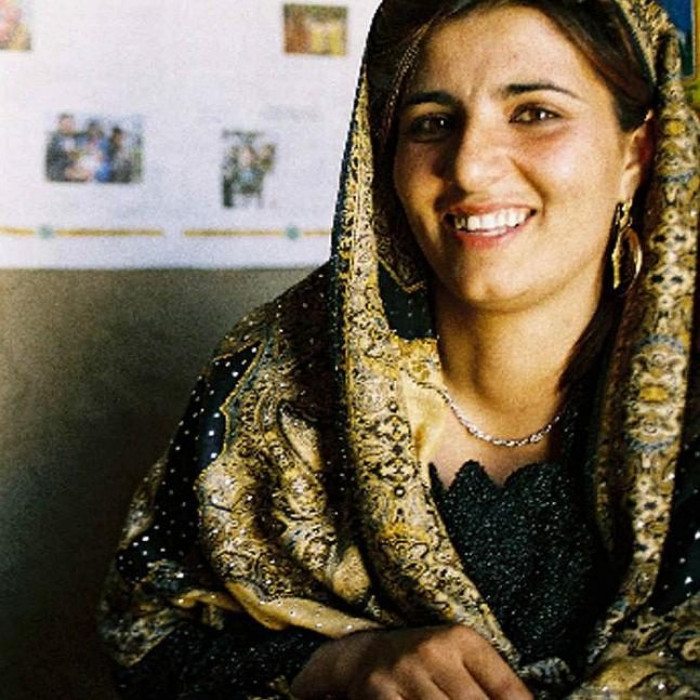Mon cœur voit la vie en noir : un amour à Kaboul
-
Réalisé par Helga Reidemeister • Écrit par Helga Reidemeister
-
Allemagne • 2009 • 86 minutes • Beta digital • Couleur
- Réalisation :
Helga Reidemeister - Écriture :
Helga Reidemeister - Assistanat de réalisation :
Nafisa Mahbub, Petra Franke - Image :
Lars Barthel - Son :
Nic Nagel, Katharina Geinitz - Montage :
Marzia Mete - Mixage :
Ansgar Frerich, Sebastian Tesch
- Production (personne) :
Zoran Solomun - Production (structure) :
Ohne Gepäck Filmproduktion - Diffuseur :
WDR - Westdeutscher Rundfunk, 3Sat, SWR - Südwestrundfunk - Ayant droit :
Ohne Gepäck Filmproduktion - Accès au fichier des sous-titres français :
Bpi - Bibliothèque Publique d'Information
- N° ISAN :
non renseigné
Résumé
Hossein et Shaima s'aiment depuis l'enfance. La guerre les sépare alors qu'ils sont adolescents. Ils se retrouvent dans le Kaboul des années 1990, et se battent contre tout et tous pour leur amour.
Hossein and Shaima have loved each other since childhood. As teenagers they were separated by war. They meet again in Kabul in the 1990s. Poverty forces Hossein to fight in the war. A shell splinter leaves him a paraplegic. Shortly afterwards, Shaima is sold in marriage to a man 40 years her senior. Shaima, who is the man's fourth wife, falls pregnant. But Shaima's husband still owes half the dowry, and so her father brings her back into the constraining patriarchal fold of the family, where she lives today with her five-year-old daughter.
This situation doesn't prevent the two lovers from seeing each other as much as possible – even though this means going against their families' hard and fast rules. They both dream of living together in peace.
Caught on the horns of a dilemma, and in constant fear of revenge on the part of the male members of both families who adhere to the harsh tribal laws handed down from the Middle Ages, Hossein and Shaima struggle under the most difficult circumstances imaginable to hold on to their love.
This film describes the infringement of a taboo, the outcome of which is still uncertain. In an environment where war and want have dealt heavy blows on compassion and humanity and the family is the only remaining social bond, the chances of personal happiness are very slim indeed
Hossein und Shaima lieben sich seit ihrer Kindheit. Der Krieg reißt sie als Halbwüchsige auseinander. Im Kabul der 90er Jahre finden sie sich wieder. Die Armut zwingt Hossein, im Krieg zu kämpfen. Hossein wird durch Granatsplitter verletzt und ist danach querschnittsgelähmt. Wenig später wird Shaima als vierte Ehefrau an einen 40 Jahre älteren Mann verkauft und schwanger. Shaimas Ehemann bleibt die Hälfte des Brautgeldes schuldig. Deshalb holt ihr Vater sie zurück in die partriarchalische Enge seiner Familie, wo sie mit ihrer inzwischen fünfjährigen Tochter noch heute lebt.
Das hindert die beiden Liebenden nicht, sich gegen den strikten Willen ihrer Familien so oft wie möglich zu sehen. Sie träumen von einem gemeinsamen Leben in Frieden. In Bedrängnis und in Angst vor der drohenden Rache durch die streng mittelalterlichen Stammesgesetzen folgenden männlichen Mitglieder beider Familien, versuchen Hossein und Shaima unter schwierigsten Umständen ihre Liebe zu leben.
Mot(s)-clé(s) thématique(s)
Sélections et distinctions
- 2011 • Images en bibliothèques • Paris (France) • Film soutenu par la Commission nationale de sélection des médiathèques
- 2010 • Festival International du Film de Femmes • Créteil (France) • Prix "Anna Politkovskaïa"
- 2009 • RIDM - Rencontres internationales du documentaire de Montréal • Montréal (Canada) • Prix Image
- 2009 • Cinéma du réel • Paris (France) • News from
- 2009 • OUFF - Ourense International Film Festival • Ourense (Espagne) • Premio a la diversidad cultural
Comment avoir accès au film ?
-
Édition DVD
- Il n'existe pas d'édition DVD à notre connaissance
-
Accès VOD
- Il n'existe pas d'accès en VOD à notre connaissance
- Diffusion non commerciale / Consultation




